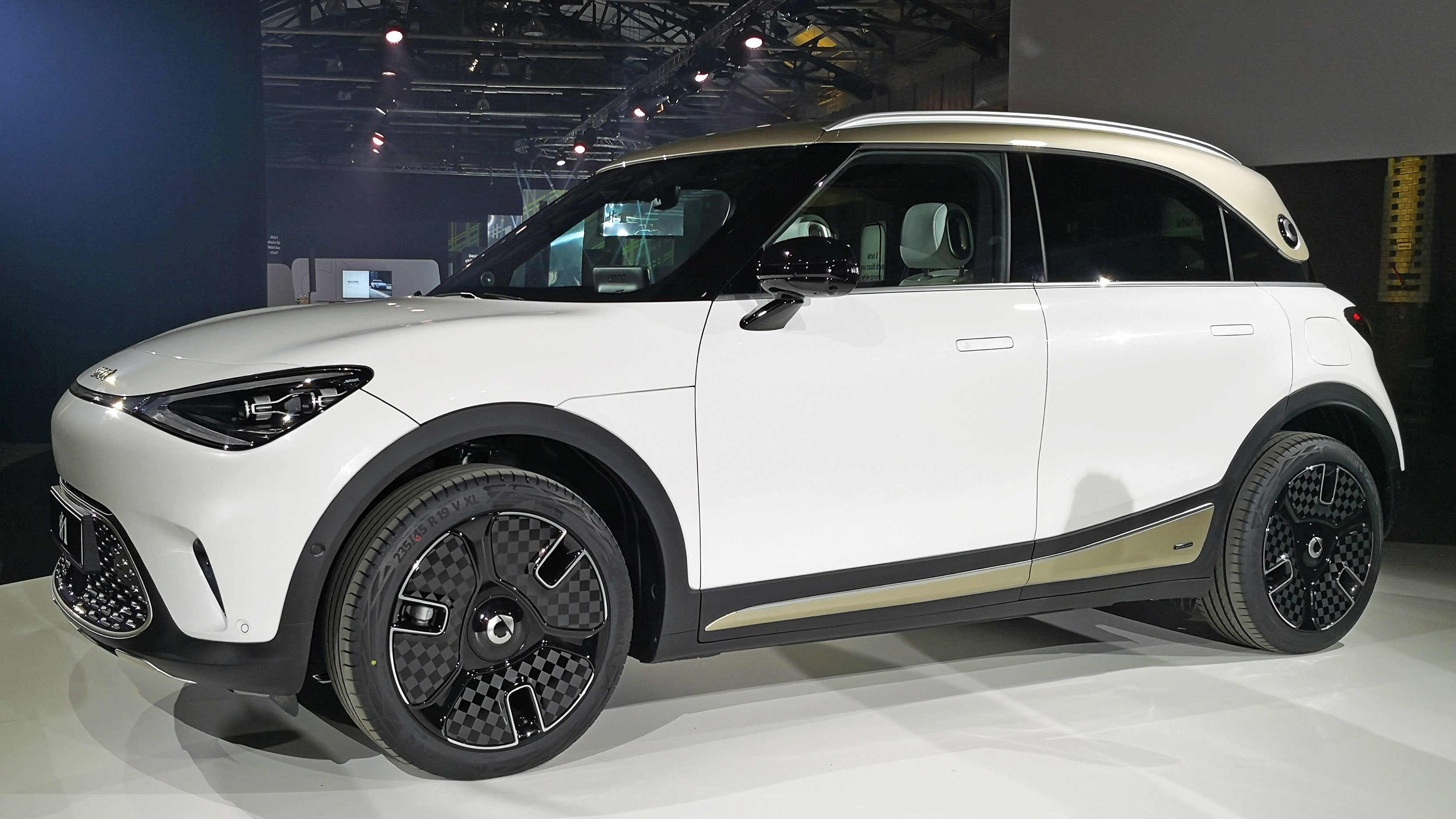
Everyone knows the original Smart car, that dinky little EQfortwo twin-seater that could squeeze into parking spaces normally reserved for motorcycles or shopping carts. Now though the automaker is being reborn as an all-electric brand and this is its first dedicated EV, the Smart #1.
It's an all-new compact crossover SUV, so not as tiny as the original Smart or the four-seat EQforfour either, but the EV still isn't huge either. We've had a look at it up close and it's reminiscent in size of, say, a slightly smaller Mercedes-Benz EQA or, perhaps, the Mini Countryman.
That's hardly surprising in a way, considering the Smart #1 has been lovingly crafted by Mercedes-Benz designers. Meanwhile, Geely will assemble the car in China due to both manufacturers owning a 50 percent stake in the company.
In terms of likely European customers the #1, or hashtag 1 is a practical family car, which should appeal to those considering the likes of the Kia e-Niro, or the Peugeot e-2008. The car will not make it to the US though since Smart exited the American market back in 2019.
A whole new direction
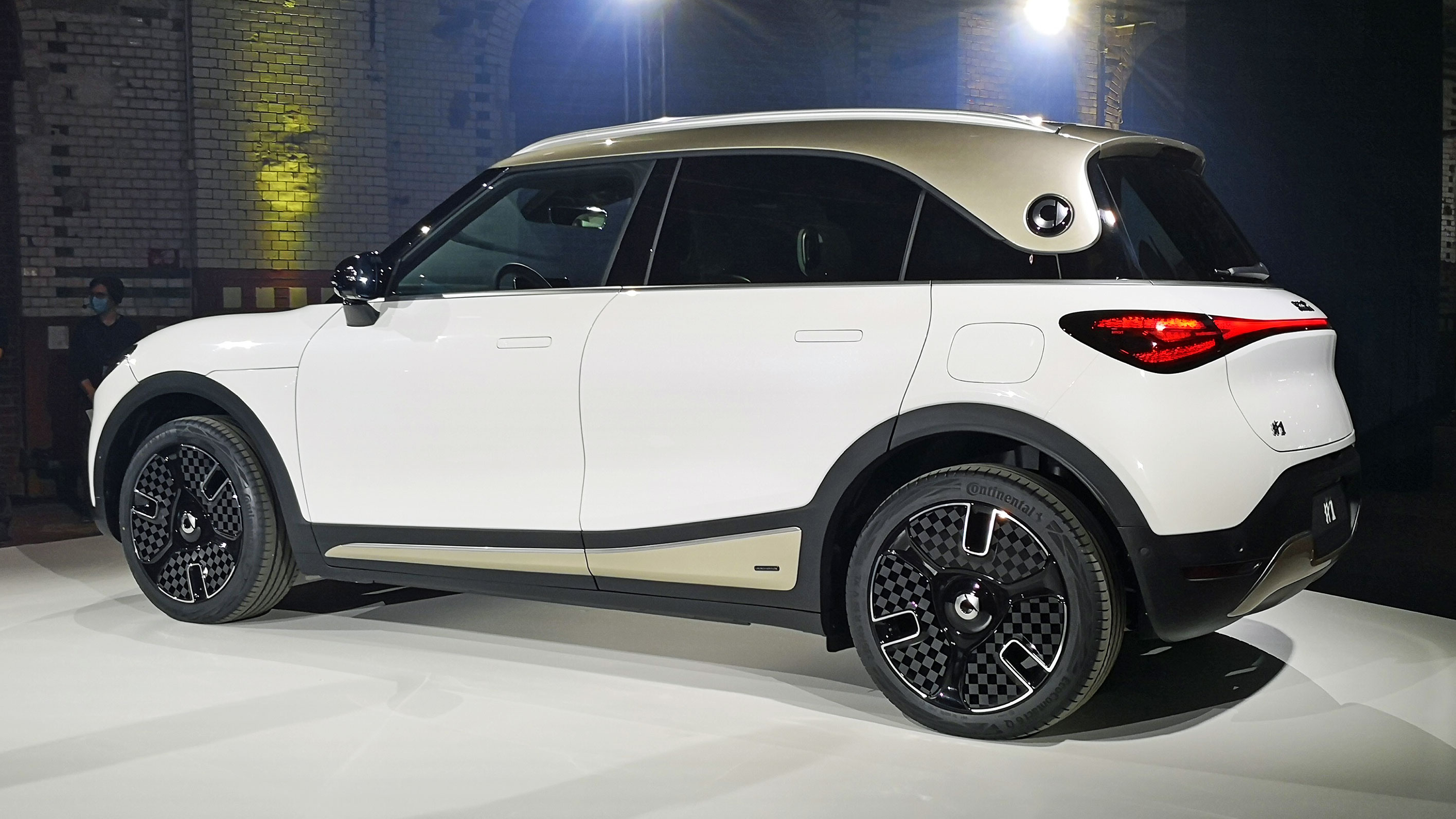
This car is the first fully electric model from smart and is designed to take the company in a whole new direction.
If you've always been keen on the quirkiness of the Smart brand there is much to like with the #1. It's been designed from scratch on Geely's all-new Sustainable Experience Architecture (SEA) platform too, so there's plenty to discover.
The 66kWh battery in the Smart #1 launch specification offers 268 horsepower, 253 pound feet of torque and a top speed of 112 mph in a rear-wheel drive setup.
Get daily insight, inspiration and deals in your inbox
Sign up for breaking news, reviews, opinion, top tech deals, and more.
It will be capable of CCS Type 2 AC charging from 10-80 percent with 22kW in 3 hours. DC super-fast charging will reduce that to under 30 minutes, while the Smart #1 range is expected to be in the region of 273 miles.
Beefy on the outside
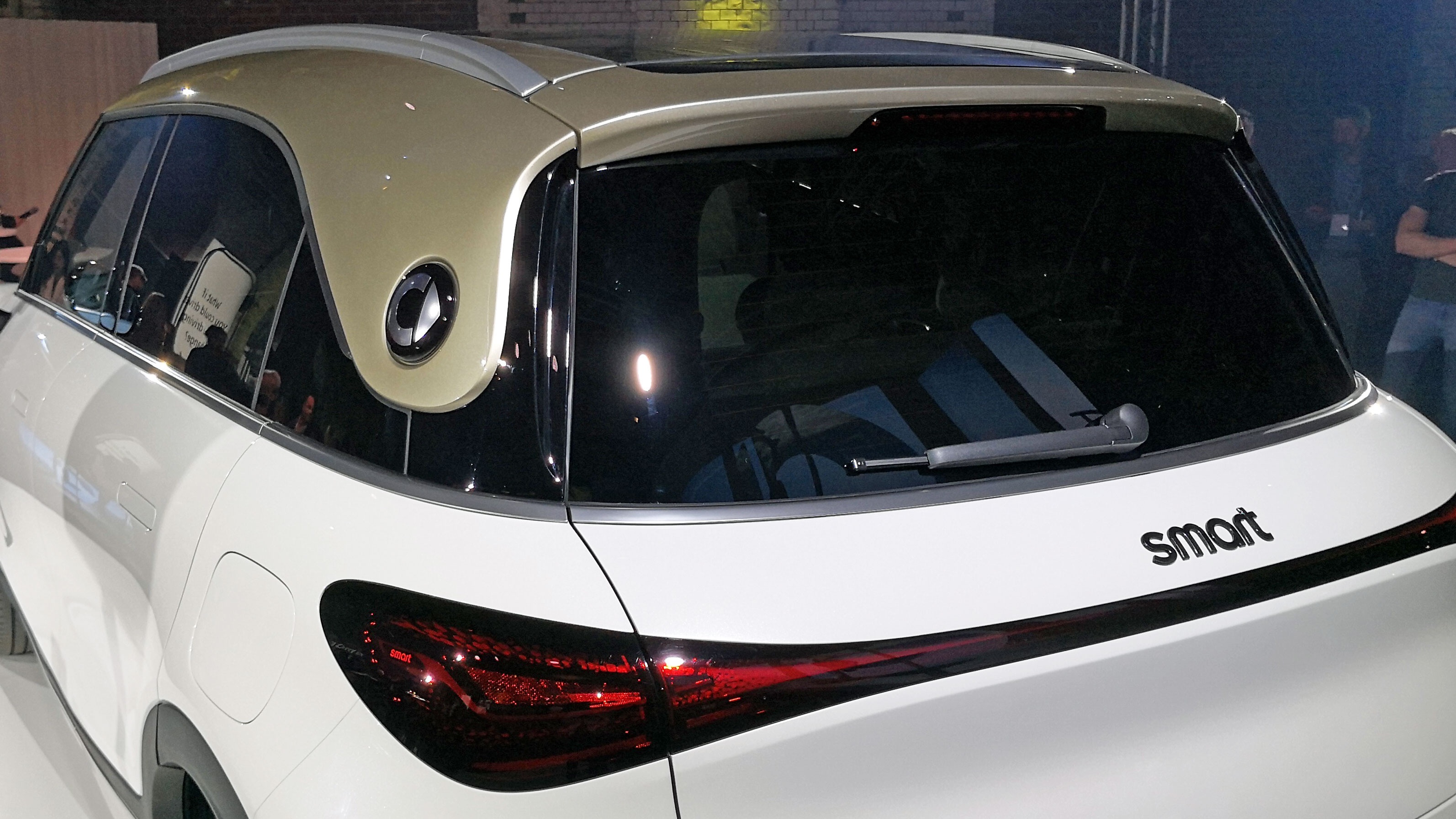
One of the biggest differences with the Smart #1 compared to the company's previous output is the space on offer.
The car is 4.27 metres long, 1.83 metres wide and 1.6 metres high with a wheelbase of 2.75 metres, so it's certainly chunky enough to appeal to anyone with a family who needs space on the inside.
There are beefy 19-inch wheels too, which have been pushed right to the four corners of the car because it's sits on that purpose-built SEA electric architecture. This adds to the stocky but upright look of the car.
Out front, there are triangular-shaped LED headlights, which is a design theme that could feature on subsequent new models too. The look is similar at the back, with cool wraparound taillights.
In-between, the smooth lines are enhanced by recessed door handles. Meanwhile, a really nice design flourish is the floating roof, which is made all the more effective by being finished in a contrasting color.
Zany on the inside
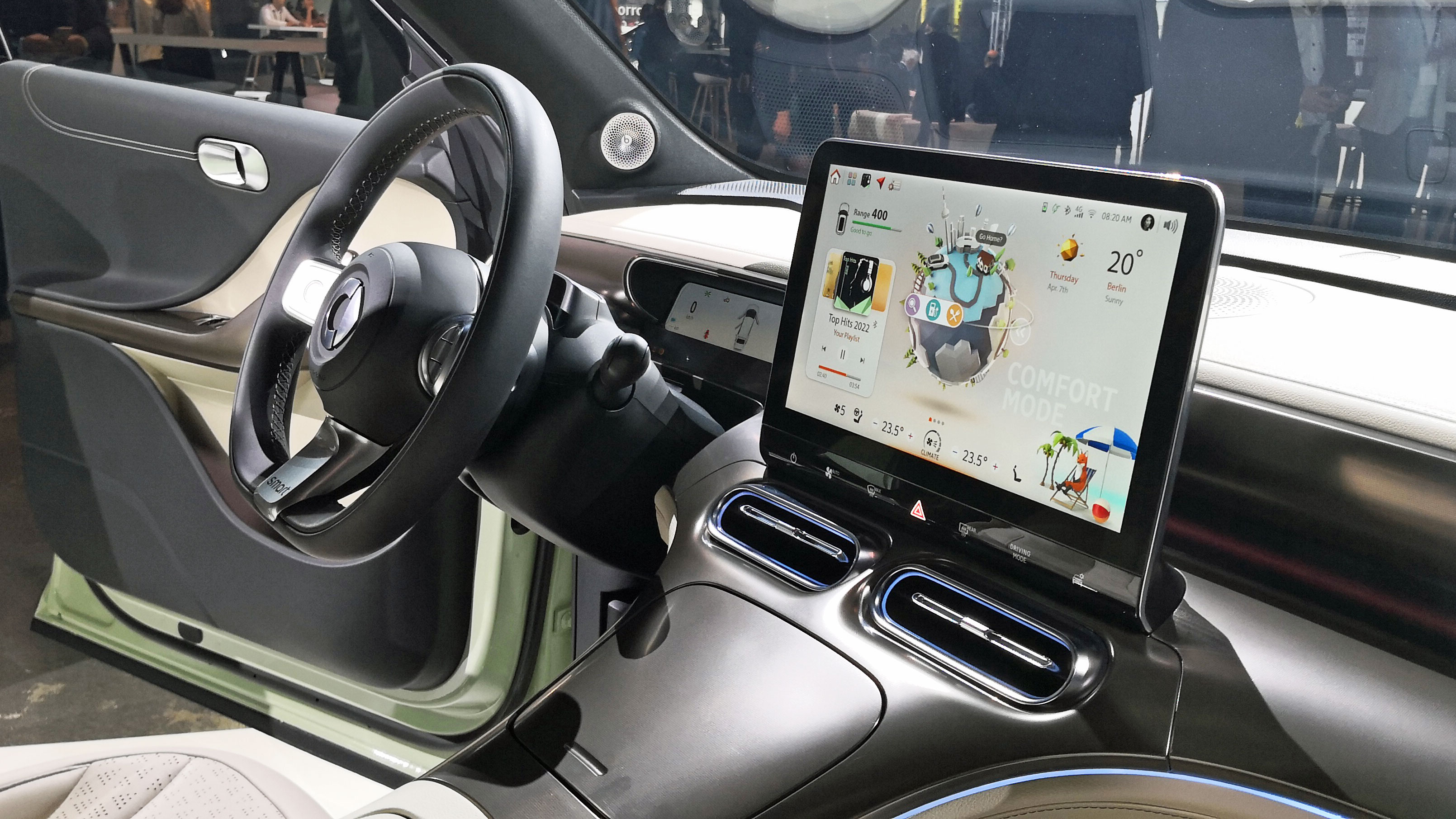
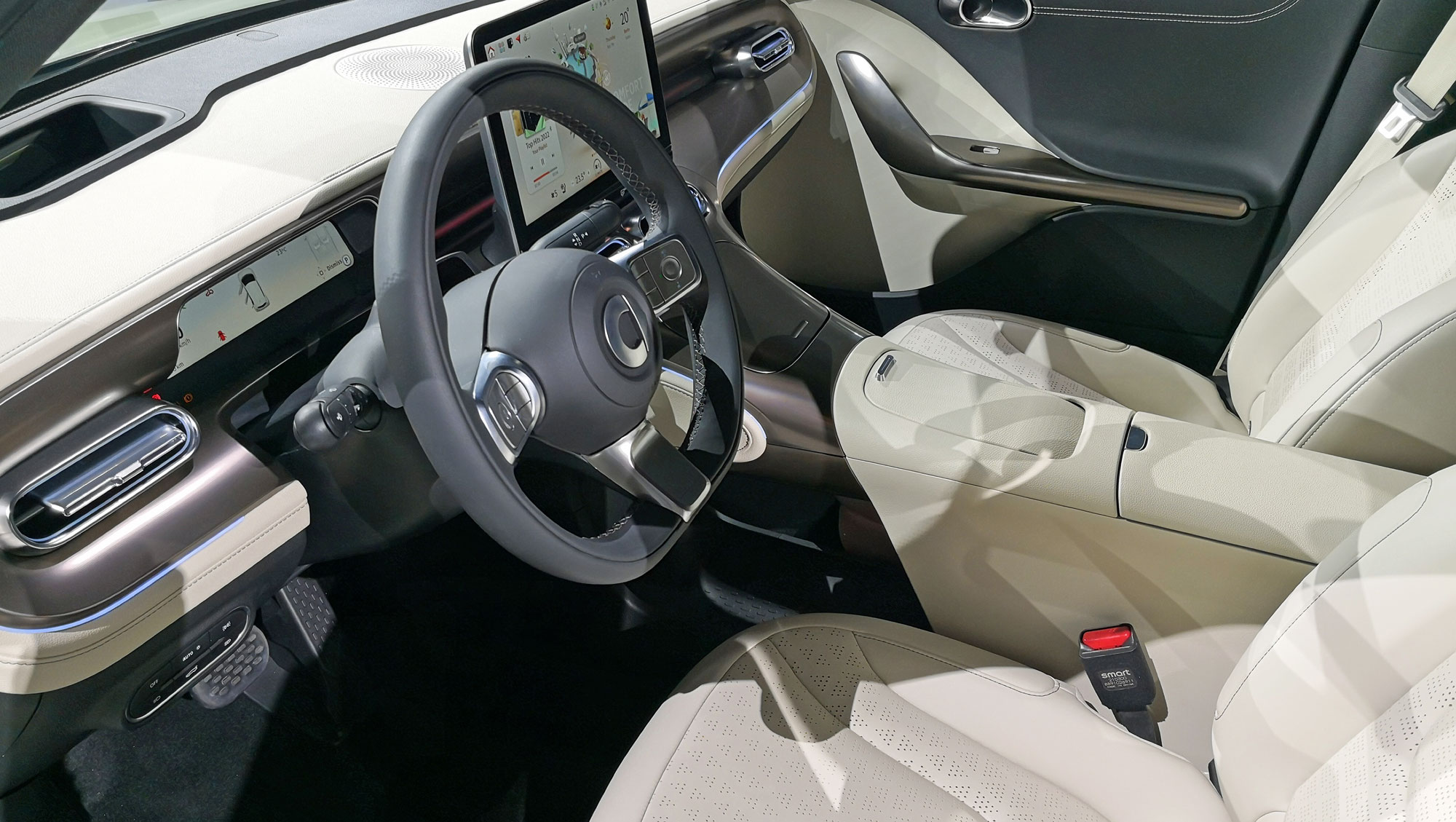
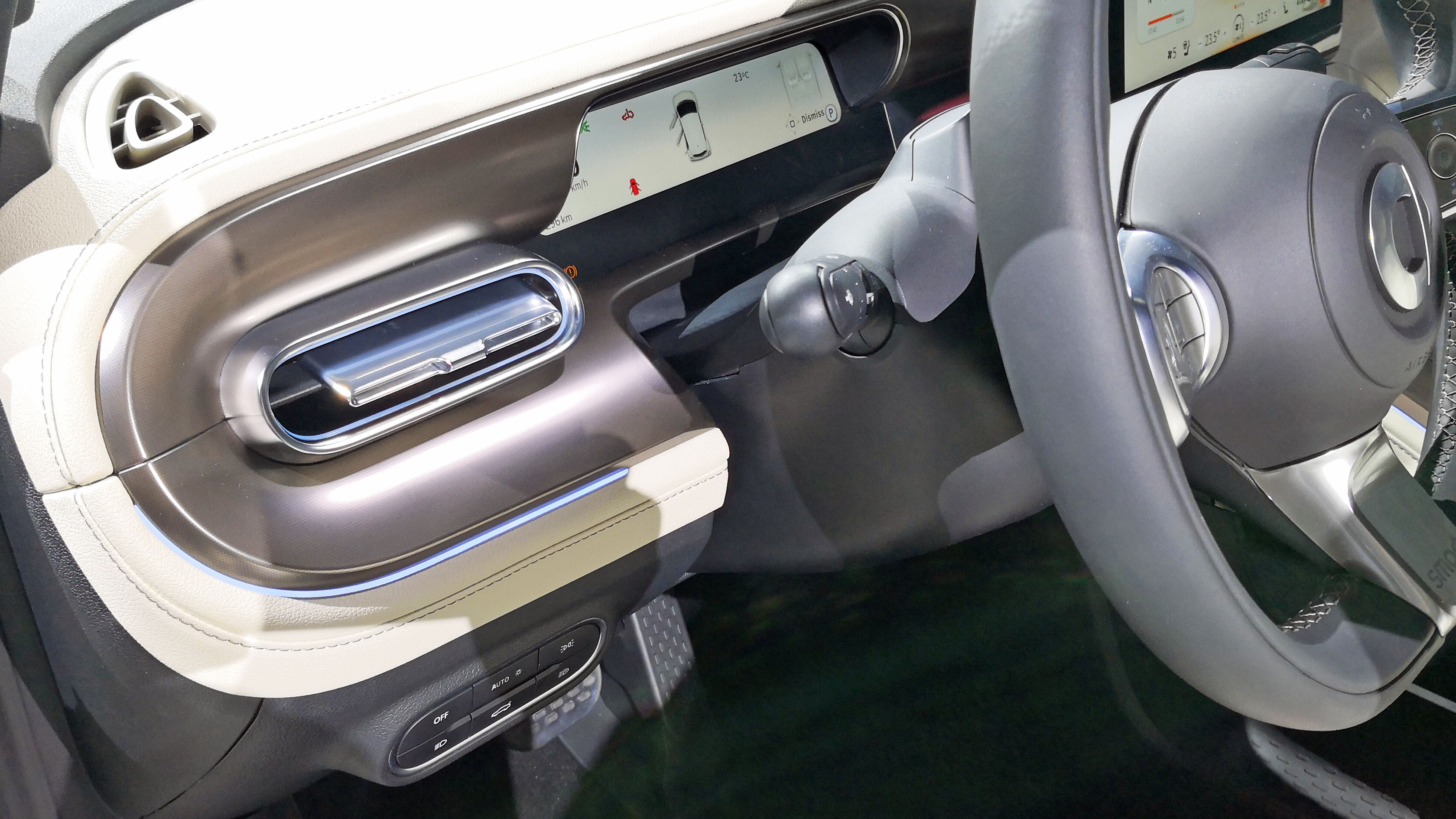
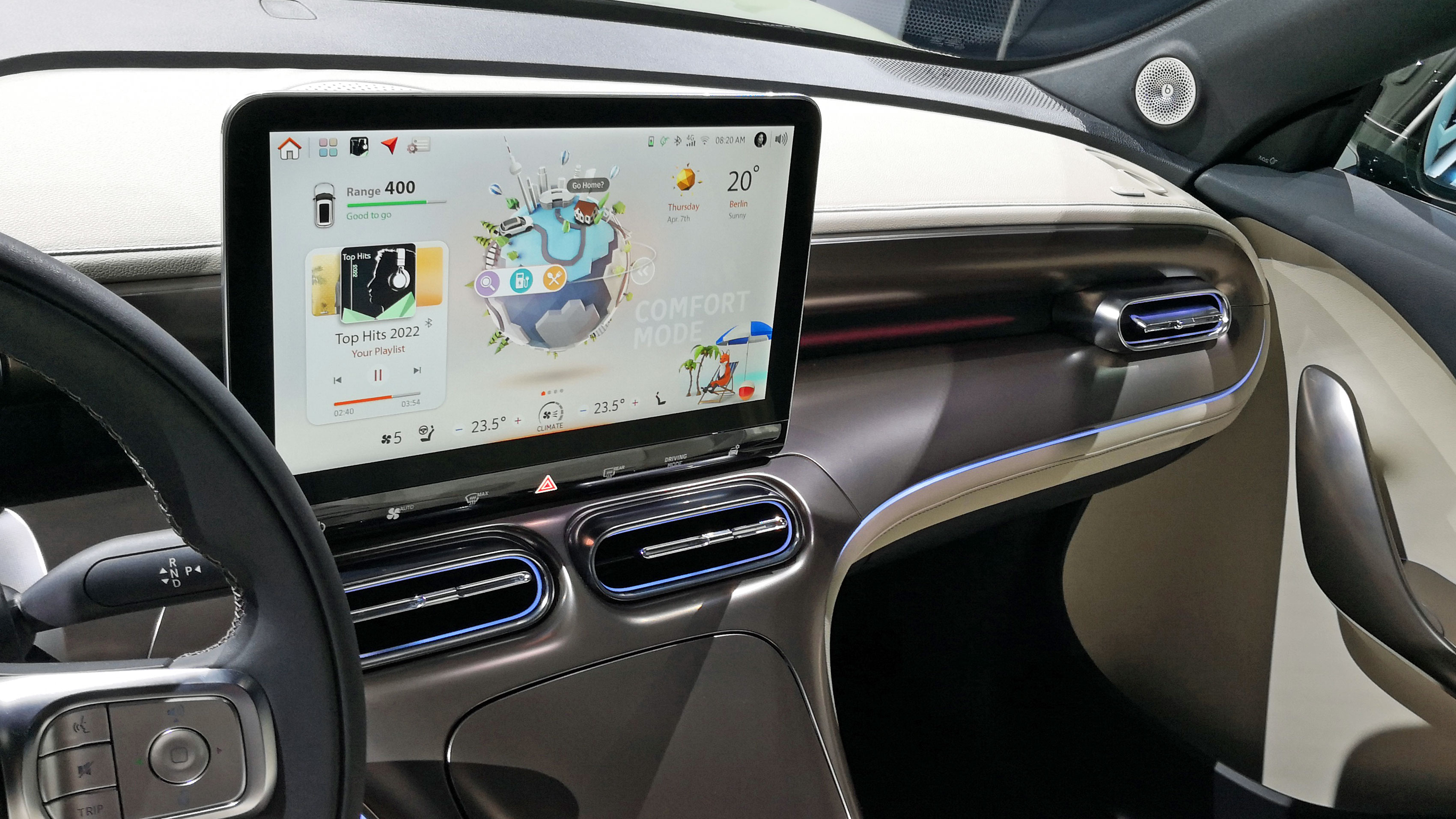
The interior of the Smart #1 is certainly inviting. You're immediately drawn to the floating center console, which is funky enough to remind you that you're sitting in something from the Smart brand.
There are plenty of handy little covered storage bins here, while the seats either side look inviting and will come with vegan trim options.
There's a central 12.8-inch touchscreen featuring 1920 x 1080 resolution and it looks great thanks to graphics that underline Smart's slightly zany edge. This offers access to a raft of infotainment settings including personalized driver profiles, navigation, climate controls and audio.
AI-based voice controls should prove popular too, as will the ability to use your phone as a key.
If you're sitting behind the wheel you'll get a 9.2-inch full HD digital instrument cluster, plus a 10-inch head-up display.
A suite of driver aids is also available, which includes adaptive cruise control with Stop & Go function, active lane keeping system, blind spot assist, highway and traffic jam assist plus auto parking assist and adaptive high beam assist for good measure.
Family friendly all-round
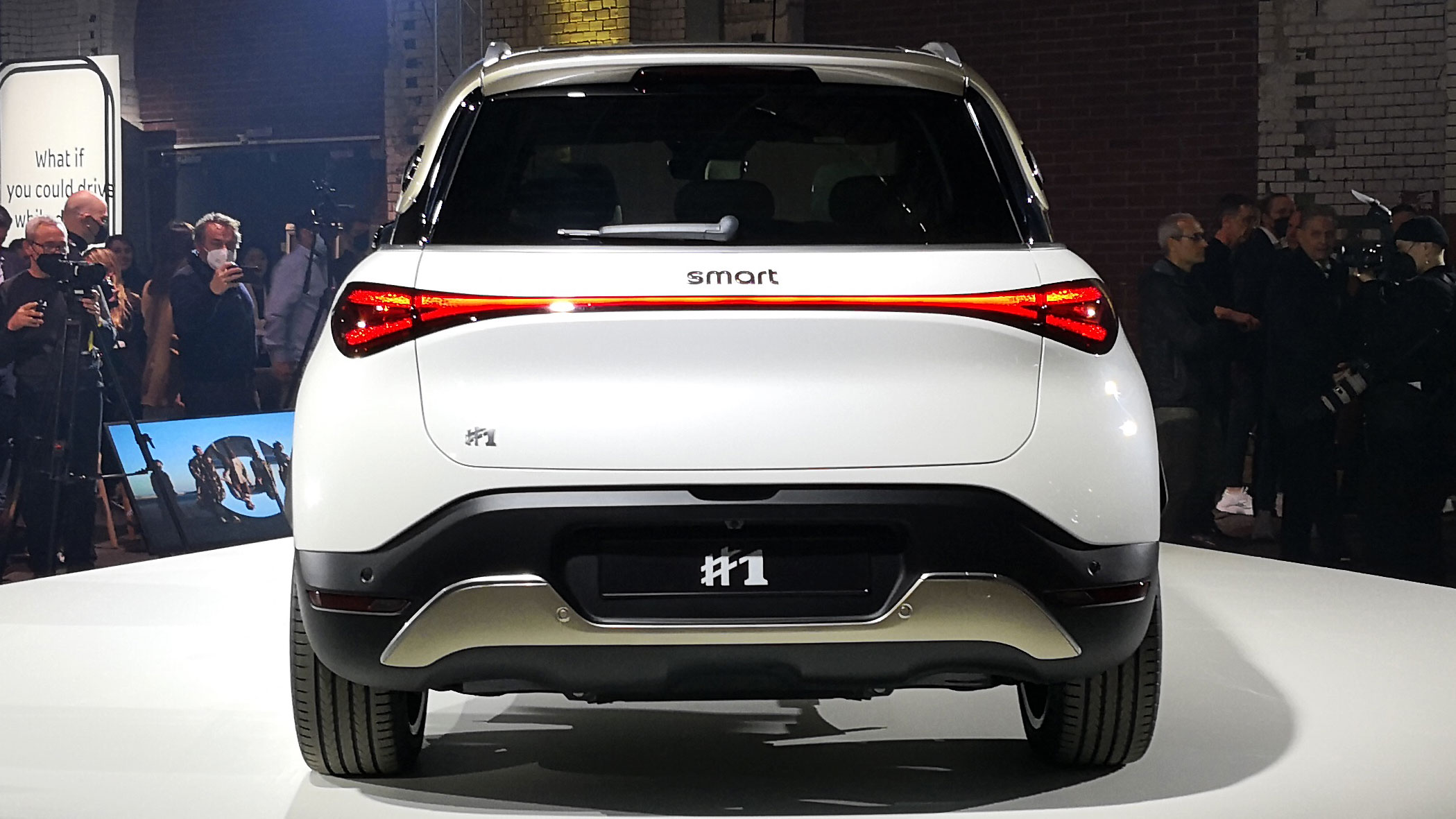
The Smart #1 has been designed to provide all of the everyday necessities and definitely seems family-friendly, especially when it comes to keeping passengers entertained.
It's an open and airy environment inside too, which is always a bonus if you frequently carry small children who get travel sick on a regular basis. The halo glass roof on the models we've seen helps on that front by enhancing the spacious feel.
If you're in desperate need of a distraction for tetchy kids you'll be able to keep them entertained easily thanks to the ambient lighting. This comes with a selection of 64 colors and no less than 20 different illumination levels, offering the chance to lift the mood inside.
Handy if you're trying to raise morale on a longer journey while having to make many stops for the toilet en route.
As you'd also expect from a car aimed at families, the luggage capabilities of the Smart #1 are solid, with the boot offering between 273 and 411 litres of space, depending on if you need to fold the seats or not.
The rear seats also slide forward for extra flexibility. A 15-litre frunk offers supplementary storage up front should you need it.
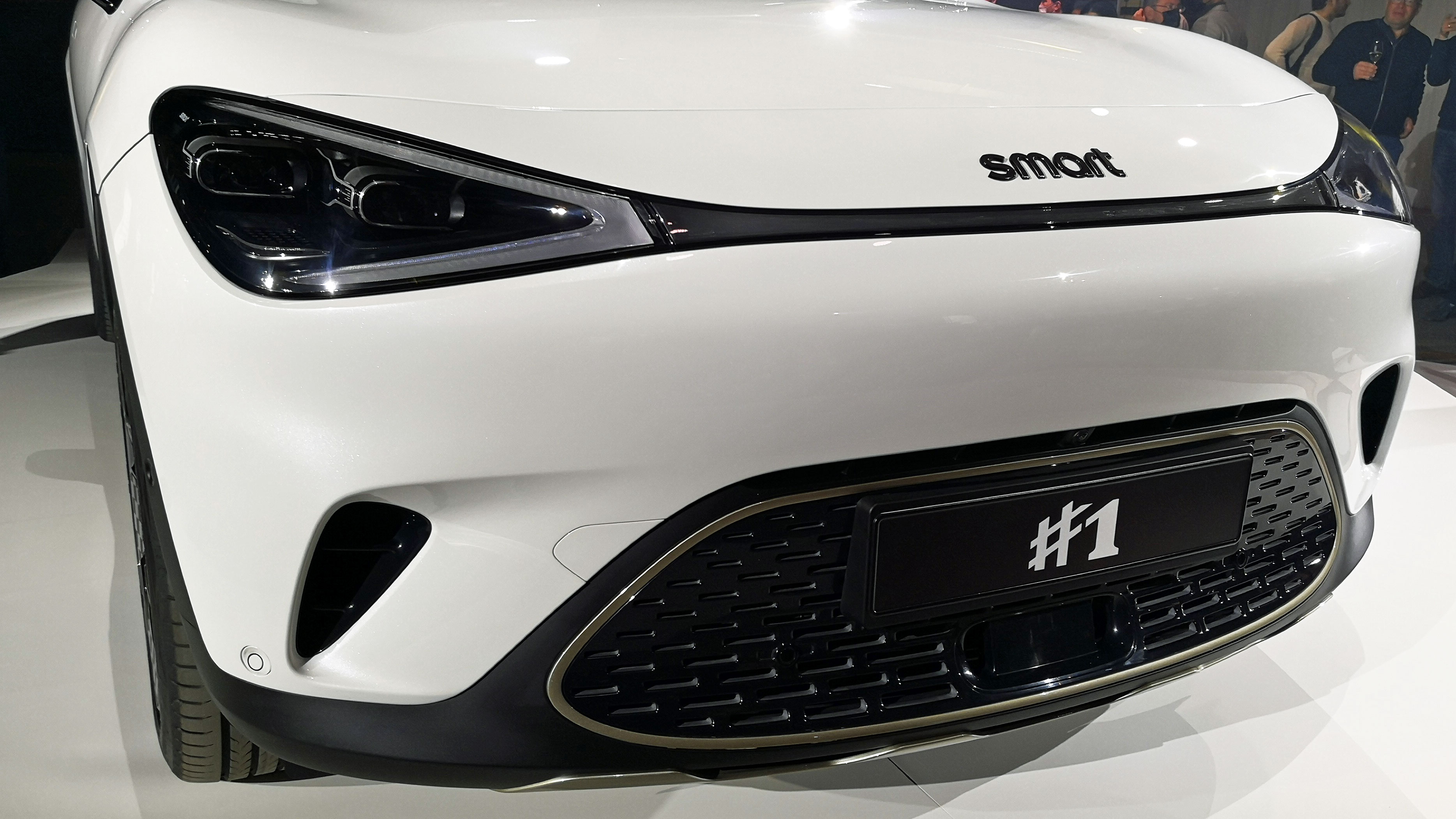
An impressive start for Smart
We haven't had a chance to drive the Smart #1 yet, but the car looks impressive. It should be available to buy later on in the year and, based on presentations at the Berlin unveil, there could be other cars to follow.
Again, these will be based on the SEA platform, which offers the smart designers scalability. That could, theoretically, mean bigger or smaller models to help boost the all-electric rebirth of smart.
However, it seems there are no immediate plans for smart to relaunch the brand in the United States. A shame perhaps, especially seeing as the Smart #1 seems ideally suited to the future needs of American motorists.
Rob Clymo has been a tech journalist for more years than he can actually remember, having started out in the wacky world of print magazines before discovering the power of the internet. Since he's been all-digital he has run the Innovation channel during a few years at Microsoft as well as turning out regular news, reviews, features and other content for the likes of TechRadar, TechRadar Pro, Tom's Guide, Fit&Well, Gizmodo, Shortlist, Automotive Interiors World, Automotive Testing Technology International, Future of Transportation and Electric & Hybrid Vehicle Technology International. In the rare moments he's not working he's usually out and about on one of numerous e-bikes in his collection.
